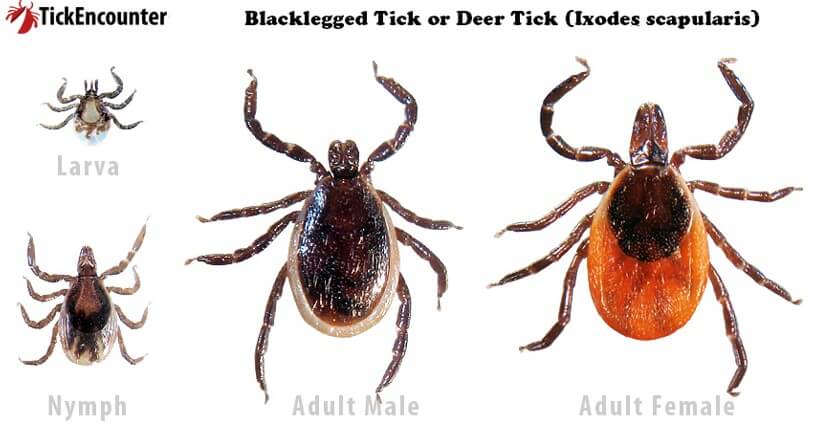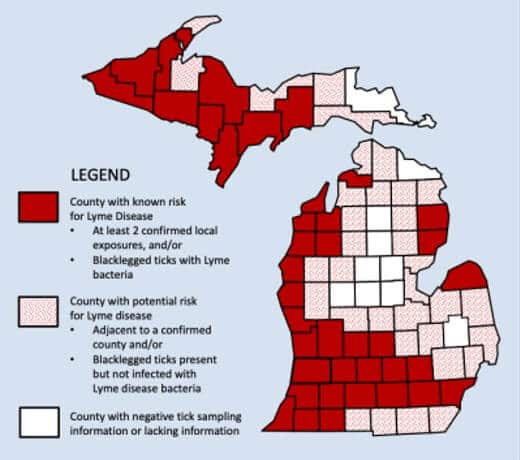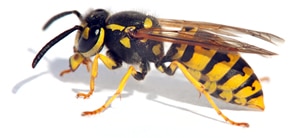Ticks in Michigan
To help prevent ticks from living in your yard, you need to create an 8-10ft “clean space” between the woods and your yard. Trim back tree branches to let as much light into your yard as possible. Rake up and remove all leaf litter. Keep the grass mowed as short as possible. Remove fallen branches and anything that will create a shaded spot for them to live in. A Do-it-yourself way to see if ticks are living in your yard is to take a white towel and attach it to a stick and drag it around the grass and woods line of your property, if you find any on the towel, you have a tick problem. Similar to a mosquito spray, NIX Pest Solutions suggest that you treat all the foliage in the immediate area around your house as well as the lawn with a broad application of residual insecticide with the proper label.
Ticks are closely related to insects and spiders, and there are over 20 known tick species in Michigan. Usually they feed on wildlife, however people may be bitten when they spend time in areas where ticks live.
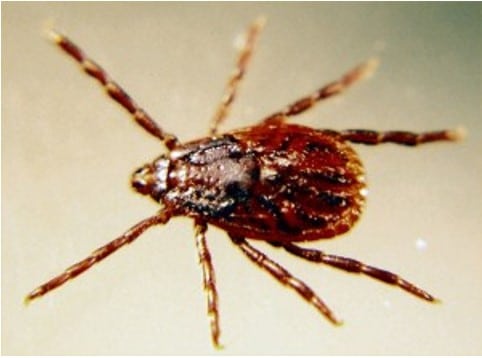
Brown Dog Tick
The only good thing about this tick is that it rarely feeds on people. The brown dog tick is probably the most widely distributed tick in the world and is found throughout the United States, though it is much more common in warmer areas in the country. The MSU extension office has had 2 samples of Brown dog ticks sent to them for identification over the past several years. If you find this tick on your dog or in your yard you will most likely need to call in the professionals. It takes a 5-step treatment program to address the problem. 1. Identification of the tick 2. Sanitation 3. Treatment of the pet. 4. Indoor treatment 5. Outdoor treatment. To set up a Brown Dog Tick treatment service with NIX pest solutions we will require a thorough site inspection and a contractual obligation on the customer to treat the pet. Veterinarians offer a dip for your pet or you can get over the counter Tick medication.
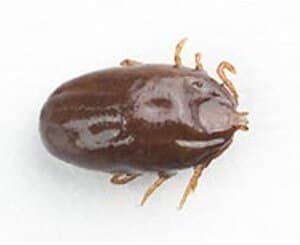
American Dog Tick
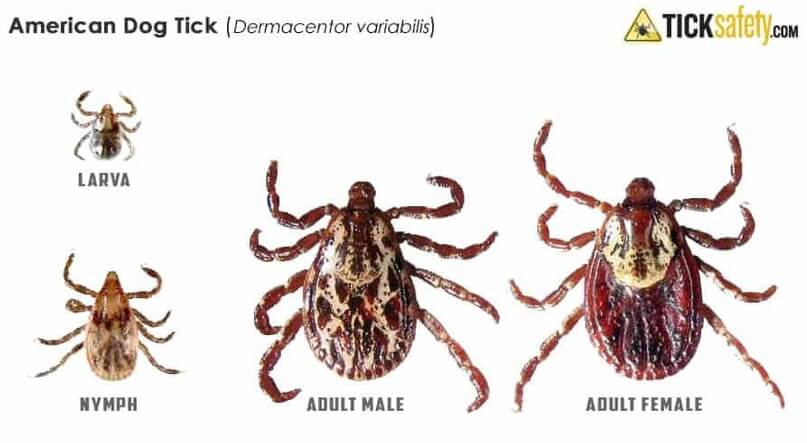
Black Legged Tick
Emerging as a serious public health concern in Michigan, the Black-legged tick is the vector of Lyme disease, granulocytic anaplasmosis, and babesiosis. This tick readily quests for hosts in the low vegetation of forests with abundant small mammals and white-tailed deer, accumulating along human and game trails. See the map for the currently known distribution.
